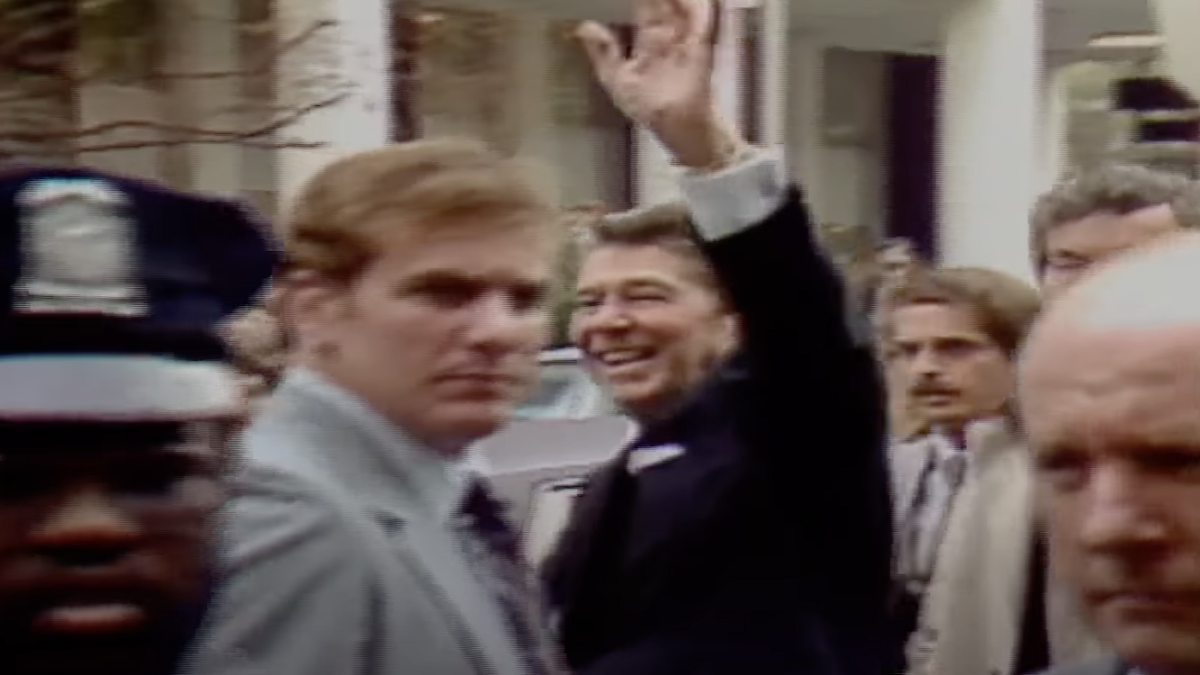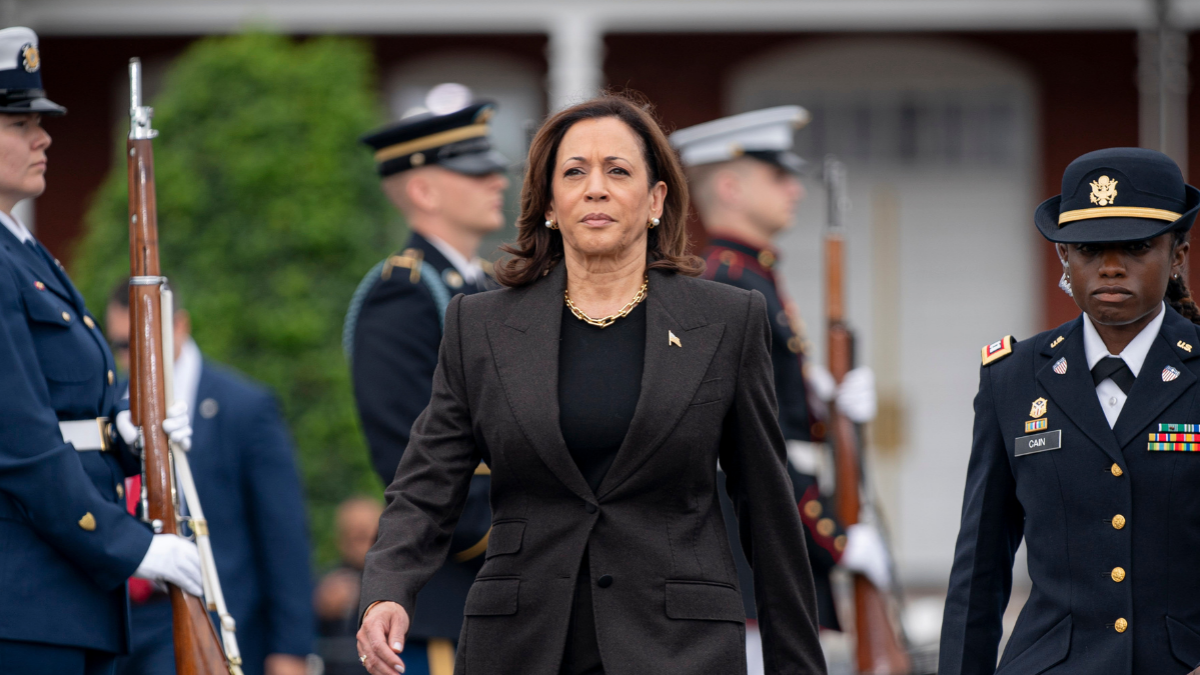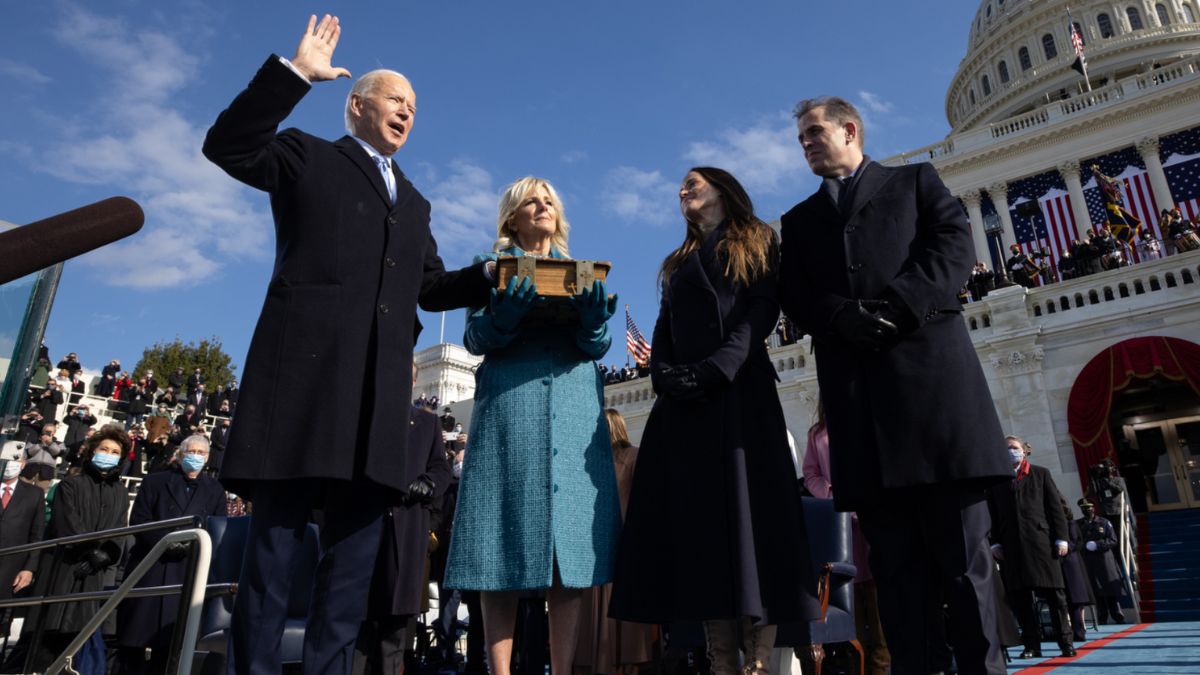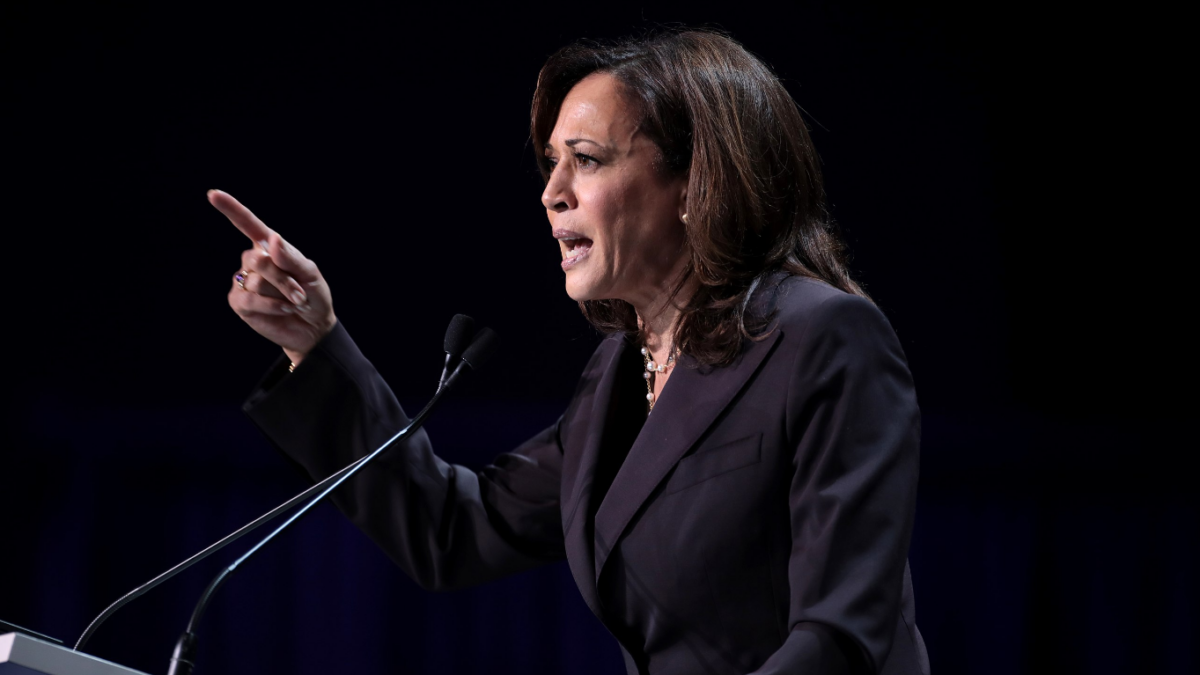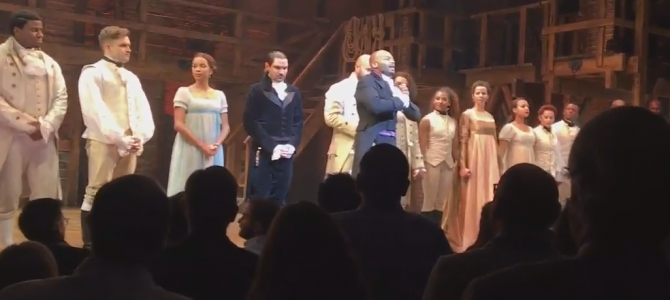
When Vice President-elect Mike Pence decided to attend the hit musical “Hamilton” last night, things quickly turned controversial: audience members began booing him, to such a degree that the performance was interrupted.
Here’s Pence getting booed as he gets to his seats at Hamilton pic.twitter.com/IRQG68x1sB— David K (@dkipke12) November 19, 2016
At the end of the show, the cast of “Hamilton” called out Pence personally: Brandon Victor Dixon addressed him thus,
“Vice President Elect Pence, welcome. Thank you for joining us at Hamilton-An American Musical. We are the diverse America who are alarmed and anxious that your new administration will not protect us, our planet, our children, our parents, or defend us and uphold our inalienable rights. We hope this show has inspired you to uphold our American values, and work on behalf of ALL of us.”
Tonight, VP-Elect Mike Pence attended #HamiltonBway. After the show, @BrandonVDixon delivered the following statement on behalf of the show. pic.twitter.com/Jsg9Q1pMZs— Hamilton (@HamiltonMusical) November 19, 2016
The lecture Dixon gave to Pence, while more even-toned than the angry boos of audience members, did not display any respect for Pence or his office. Quite the contrary: its demeaning and condescending tone suggested that Pence—white, male conservative that he is—must have never displayed any empathy or interest in those different than himself. And that the best chance for his political salvation was to be called out publicly—to be scolded and lectured by the actors he had come to watch perform at an artistic event.
“We hope this show has inspired you to uphold our American values, and work on behalf of all of us,” Dixon said. This 30-second civics lesson to a vice president-elect surely did little more than to embarrass Pence, and foment the prejudice and righteous indignation of audience members.
We Need To Remember What President Obama Said After the Election
We’ve come a long way from Obama’s speech on November 9, in which he asked supporters to “root for” the new president-elect, and display empathy and “presumption of good faith” in voters across the aisle. His excellent speech is worth quoting in depth:
“It is no secret that the president-elect and I have some pretty significant differences. But remember, eight years ago, President Bush and I had some pretty significant differences. But President Bush’s team could not have been more professional, or more gracious… One thing you realize quickly in this job is that the presidency and the vice presidency is bigger than any of us. So I have instructed my team to follow the example that President Bush’s team followed eight years ago, and work as hard as we can to make sure that this is a successful transition for the president-elect—because we are now all rooting for his success, and united in leading the country.
“… Now, everybody is sad when their side loses an election. But the day after, we have to remember that we’re actually all on one team. This is an intramural scrimmage. We’re not Democrats first, we’re not Republicans first, we are Americans first. We’re patriots first. We all want what’s best for this country. That’s what I heard in Mr. Trump’s remarks last night, that’s what I heard when I spoke to him directly, and I was heartened by that. That’s what the country needs: a sense of unity, a sense of inclusion, a respect for our institutions, our way of life, rule of law, and a respect for each other.
… The path this country has taken has never been a straight line—we zig and zag, and sometimes we move in ways that some people think is forward, and others think is moving back. And that’s okay. … That’s the way politics works sometimes. We try really hard to persuade people that we’re right. And then people vote. And then if we lose, we learn from our mistakes, we do some reflection, we lick our wounds, we brush ourselves off, we get back in the arena. We go at it. We try even harder the next time.
“The point, though, is that we all go forward—with the presumption of good faith in our fellow citizens. Because that presumption of good faith is essential to a vibrant and functioning democracy. That’s how this country has moved forward for 240 years.”
‘Hamilton’ Attendees Refused To Give A ‘Presumption Of Good Faith’
This speech would have been just as applicable and needed had Hillary Clinton won the election. It is true of all Americans—that we ought to respect our government institutions and elected leaders, and that we ought to respect each other: to have a “presumption of good faith in our fellow citizens.”
Unfortunately, many of President Obama’s loyal followers (as well as many of President-elect Donald Trump’s) have not, as yet, expressed a willingness to engage in this sort of respect. We’ve seen this in the riots and vitriol expressed throughout the country post-election. And we saw it last night, at a performance of the hit musical “Hamilton.”
It’s partly our fault. (The media, Facebook friends, family members, work circles.) We’ve allowed political controversy to touch and tinge everything. We’ve each gotten on our soap boxes, and castigated each other for voting, thinking, or believing differently. We’ve allowed political opinion to influence our perspectives and views on everything else—even a Broadway performance.
When attendees of “Hamilton” decided to boo and cajole Vice President-elect Mike Pence last night—when the case of “Hamilton” decided to nurture the anger of their audience members—they were not proffering a chance for healing. They were not allowing for that “presumption of good faith.”
We Need Civic Empathy and Respect For the Presidency
Even if you heartily dislike both Trump and Pence—even if you disdain their characters and loath their politics—we believe in respecting the office of president. As President Obama put it, we need to display “a respect for our institutions, our way of life, [and] rule of law”—even if we dislike the president-elect in question.
Many of my friends and family members back in rural Idaho were not fans of President Barack Obama or Vice President Joe Biden when they were elected in 2008 and 2012. They did not agree with their political agendas, and feared their progressive campaign. But once Obama and Biden became the President and Vice President-elect, they agreed that these men were deserving of respect—if for no other reason, than because they were our elected leaders. If for no other reason, than because of their office.
And despite my misgivings (then and now), I came to empathize and agree with aspects of President Obama’s time in the White House. I learned to have sympathy for his agenda, even when I disagreed with it. I had—and have—a good deal of respect for the way these men have served their families and their countries. As a young voter, I may have been deeply frustrated by President Obama’s ascension to the White House. But as the past eight years have progressed, I have learned to give him the benefit of the doubt. I’ve learned to let him surprise me with actions and deeds that were nobly meant, even when I disagreed with their execution and outcome.
Is it so impossible or wrong to extend the same courtesy to Mike Pence—and even Donald Trump—at this time? We do not know, nor should we assume, what they will do. And even if Pence is a failure as a Vice President, he still deserves respect.
We Need To Embrace Winsomeness, Not Disdain
To the progressives who deeply fear Donald Trump, the next few years may seem dismal and loathsome indeed.
But I fear that we are forgetting the multitude of options beyond violent protest and angry booing that are, in fact, open to us as voters and citizens. I fear that progressives are forgetting that, despite the darkness and depression they may feel at the moment, they have opportunities to take back Congress in two years—and the presidency in four years.
This should be a time of soul searching, of careful consideration, of thoughtfulness. How might they build a more persuasive platform? How could they convince others—and, once convinced, get those folks to vote?
Both left and right need to exercise this sort of thoughtfulness. The problem is—in an age in which we’re encouraged to vent and complain, to share “how we’re feeling” without prudence or pause—the national mood has tended less toward thoughtfulness, and more towards castigation and denial.
But progressives wanting to make a difference in 2018 and 2020 will not be able to do so by booing their political leaders on their night out to the theater. Rather, they’ll need to use winsomeness to woo and convince.
Winsomeness is the ability to dialogue with those different from you, and persuade them via kindness—not contempt. It’s the ability to say, “Have you considered this other way?” and tempt others to that other way via gentleness and maturity.
Obviously, we’ve not seen much winsomeness anywhere in 2016. But that doesn’t mean we should discard the ideal. Both parties will need to pursue political winsomeness if they want to convince voters. And beyond convincing voters—winsomeness might foster the sort of civic empathy that enables us to work together in the future.
What Should Have Happened Last Night
The biggest message the cast of “Hamilton” could have sent to Vice President-elect Mike Pence would have been a “sense of unity, a sense of inclusion, a respect for our institutions, our way of life, rule of law, and a respect for each other,” as President Obama so eloquently put it after Election Day. It would have been a convicting, yet winsome message—one that said “we refuse to devolve into partisan bickering, but choose instead to respect both the office of president, and the institutional process by which you were placed in office.” (A process that Alexander Hamilton helped birth at the founding of this nation.)
It would have spoken to the large and diverse audience of “Hamilton,” encouraging them to evoke and effect positive change, to form new coalitions, to push past stereotypes and partisanship. It would have urged those in the audience not to assume the worst of their vice president, but rather to make their best effort to respect him—just as conservatives were urged to respect Hillary Clinton, had she won the presidency.
Sadly, this did not happen. But perhaps it still can in the future—if enough of us decide to step away from the Facebook statuses and the Twitter rants, and actually dialogue with each other. To think of thoughtful ways to convince and persuade, and not merely shout at each other across a crowded theater.


